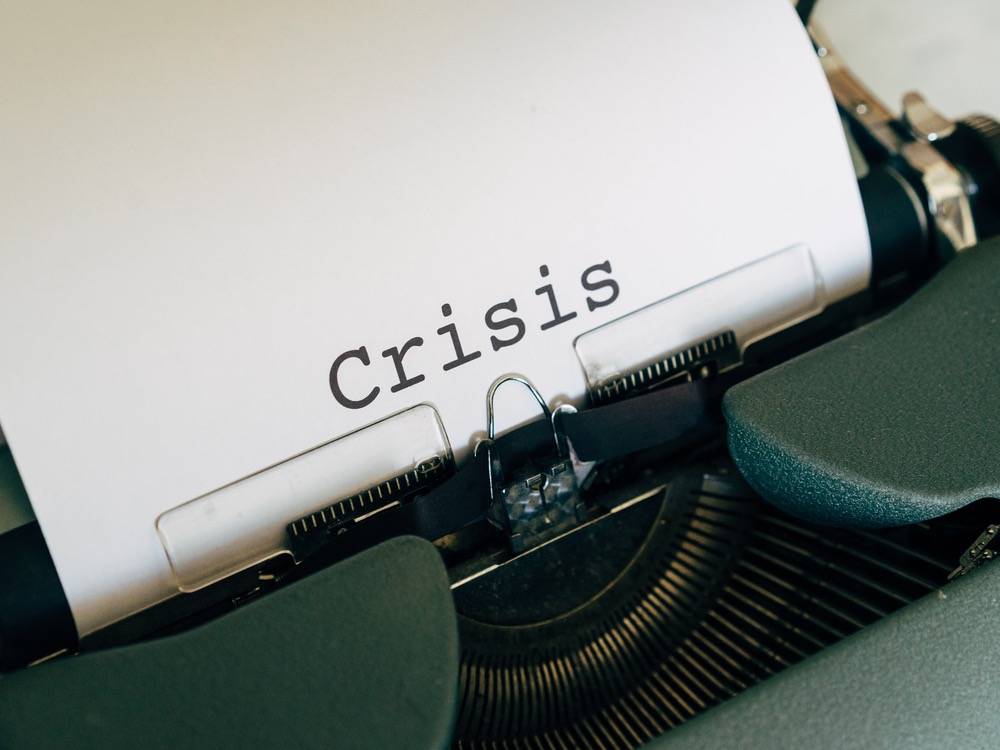What happens when technology fails you? Are you nimble, resilient, and still able to do your job? What contingency plans do you have to carry on your business when technology goes dark?
It was the heady 1990s, when I went on to give keynote speeches around the region on customer service and on the then nascent Internet technologies. I always carried my Apple Mac laptop with me, loaded up with my presentation slides.
It was in Jakarta, Indonesia, when I was just half an hour from my speech on stage, when I realized my Mac laptop could not boot. Nothing worked, despite me being one of the Apple Mac pioneers who even developed multimedia apps then. My old friend, Ron, who was to give a speech at the same conference, told me to quickly get a flip chart, and write down all my thoughts on it and to present from the flip chart. I am a very coherent thinker, and so I jotted down all my speaking points in sequence on the flip chart paper, just as I would have presented from the slides. I pushed the flip chart stand onto stage, and gave my keynote speech with no further hiccup, to applause from the audience.
It was from that single incident that I realized, that all technologies are prone to failure, no matter which vendor. And true enough, as the Internet became mainstream, and as mobile broadband became common, more and more sophisticated technologies came onto the scene. And yet, big and small vendors alike (including “big tech”), would fail users again and again, either with lousy software code, or riddled with vulnerabilities and crumbled under cyber attacks.
So, I urge you to imagine this, what is your crisis management plan when your favorite technologies fail you? Can your business still stand and continue?
Inventory is key
Do you know what food you have in the fridge? Are you prepared with dried food should your fridge fails on you? We need to know what we possess, so that we can determine what actions to take.
So, you must inventory all the technologies you use in your business, including software, cloud services, hardware, IoT, and more. Make sure for every node in your technology ecosystem, there is a redundant means to get the same job done, including if all technologies fail.
You cannot solve a problem if you do not know what you possess.
Develop expertise
The Chinese script is fascinating, in that each word or character, can be multiple meanings, depending on which context you choose. For example, in this calligraphic character I wrote, the same word can mean “expertise”, or it can mean “smoothness”.

Therefore, the quick answer to all crises because of a failure of technologies, is to be an expert in what you do. If you know enough, you can sustain your business even if you only have pencil and paper, or market and flip chart paper if you are on stage. Measure your business resilience not by how many redundant technologies you deploy, but by alternative non-digital means you can get things done. Remember, many of today’s sophisticated technologies are highly layered, and have many potential points of failure.
As an analogy, your AI chatbot is not a technology by itself, but needs a powerful infrastructure from one of the big tech vendors to drive it. Imagine if the big tech vendor’s data centers goes dark, your fancy AI chatbot would be a dud.
Imagine a restaurant where you are the founder. If your chef bails on you, are you as good a chef to pick up the slack and allow your restaurant to continue?
Dry runs
Crises happen to everyone. No business can be exempt from a crisis now and then. The answer is not whether you can rely on proverbial luck, but rather, if you can respond to crises effectively. So, rather than leave things to chance and assuring yourself of angst and failure, why not ensure your business is battle ready for any crisis? Develop a crisis preparedness and communication program. Then have dry runs or simulations to ensure that any eventual crisis can be met with effective responses with the right people in place. Such simulations also ensure that you can test out alternative solutions to sustaining your business, just as my flip chart did when my laptop died on me.
This crisis preparedness is especially important in public relations too. Imagine if you faced the same situation when you are having a media conference similar to my Jakarta keynote, would you be prepared? You should therefore, do what I do these days, to also print out my slides onto paper, and with key points on cue cards.
So, trust no technology, whether they are from a big tech vendor, or a startup. They are mere tools designed by mere humans, and can fail, and will fail, sometimes at the worst time possible. Once you adopt a battle ready mindset for your business, with expertise all round, and be prepared for crises, then you are able to sail through such crises especially even when technologies go dark on you. After all, the show must go on.
###

Dr Seamus Phan – Global C-suite Publicist & Strategist (Biochemist, Cybersecurity & Webdev pioneer, Author, Journalist) with 37 years of professional field experience.




